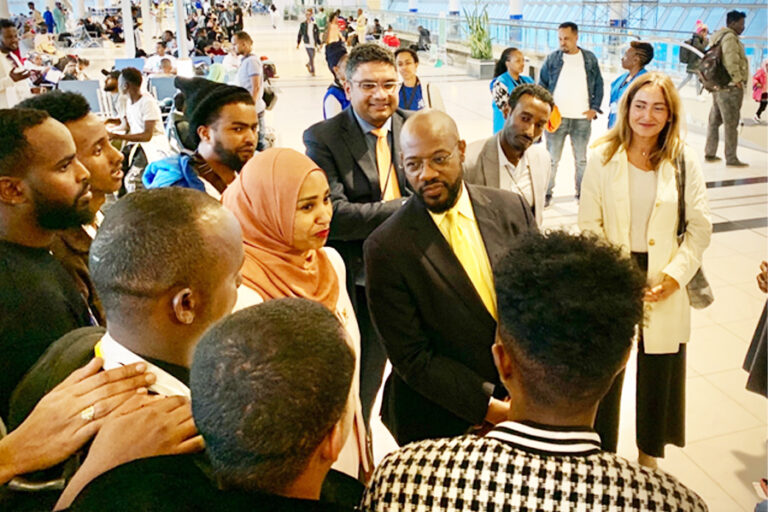Orange Energies announces it is opening up its digital platform Orange Smart Energies to all energy producers in Africa. The goal is to increase energy inclusion by providing easy, prepaid access to energy through solar kits and smart meters. This IOT platform provides a solution to the profitability challenges faced by energy producers in Africa, by reducing the risk of non-payment.
Developed by Orange and enhanced in 2021, Orange Smart Energies is a software platform now open to all energy producers in Africa and the Middle East that guarantees payment by their customers via mobile money. The business model, based on a partnership between Orange and energy producers, enables Orange Energies to provide a digital service and a distribution network that makes it easier for everyone to access energy in rural areas, down to the last kilometer. This universal platform is the only one on the market that supports both pay-as-you-go solar equipment and prepaid smart meters.
Since its launch in 2017, Orange Energies’ ambition has always been to make energy more accessible by becoming the preferred partner of energy producers in a region of the world where one in two Africans lives without electricity and where electricity companies want to improve the efficiency of accounts receivable collection. Operating in 12 countries (DRC, Madagascar, Cameroon, Senegal, Côte d’Ivoire, Central African Republic, Burkina Faso, Mali, Sierra Leone, Liberia, Guinea and Jordan), with more than 300,000 households benefiting from its services every day, Orange Energies continues to expand its customer base and regional coverage across the continent. You can find more information about Orange Energies here: http://apo-opa.co/4b9DVGY.
Jérôme Hénique, CEO of Orange Middle East and Africa says: “Using digital technology to improve the energy inclusion of African people has been our ambition since day one. By opening up our Orange Smart Energies platform to all energy producers, we are taking a major step forward in our commitment to universal access to energy in Africa and the Middle East.”
Nat-Sy Missamou, Senior Vice President of Orange Energies for Africa and the Middle East added: “We are working with energy producers to help them sustain their business in African markets. Leveraging existing digital and financial inclusion solutions, our pay-as-you-go service is delivered through a distribution model tailored to African markets.”
Distributed by APO Group on behalf of Orange Middle East and Africa.
Press contacts:
Stella Fumey:
stella.fumey@orange.com
Krista Stephens:
krista.stephens@orange.com
About Orange:
Orange is one of the world’s leading telecommunications operators with sales of €43.5 billion in 2023 and 129,500 employees worldwide as at March 31, 2024, including 72,500 in France. The Group had a total customer base of more than 282 million customers on March 31, 2023, including 243 million mobile customers and 21 million fixed broadband customers worldwide. The Group is present in 26 countries (including non-consolidated countries). Orange is also a leading provider of global IT and telecommunication services to multinational companies under the brand Orange Business. In February 2023, the Group presented its “Lead the future” strategic plan, built on a new business model and guided by responsibility and efficiency. “Lead the Future” capitalizes on network excellence to reinforce Orange’s leadership in service quality.
Orange is listed on Euronext Paris (symbol ORA) and on the New York Stock Exchange (symbol ORAN).
For more information (online and on your mobile): www.Orange.com, www.Orange-business.com and the Orange News app or to follow us on X: https://apo-opa.co/4ewNlPx.
Orange and any other Orange product or service names included in this material are trademarks of Orange or Orange Brand Services Limited.
About Orange Africa and Middle East (OMEA):
Orange is present in 18 countries in Africa and the Middle East where it had over 149 million customers on December 31, 2023. With €7.1 billion in turnover in 2023, Orange MEA is the Group’s main growth region. Orange Money, with its money transfer and financial services offer is available in 17 countries and has 90 million customers. Orange, a multi-service operator, benchmark partner of the digital transformation, provides its expertise to support the development of new digital services in Africa and the Middle East.



